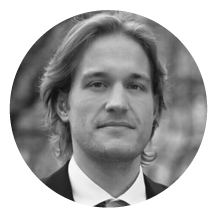
Kevin Schneider is the executive director of the Nonhuman Rights Project (NhRP), a position he has held since October 2015, and an attorney admitted to the New York Bar. Kevin began as a volunteer with the NhRP in 2010 and was inspired to study law in large part by the idea of nonhuman animal personhood. The NhRP was founded in 1996 by attorney Steven M. Wise and works to secure legally recognized fundamental rights for nonhuman animals through litigation, advocacy, and education. Its mission is to change the legal status of at least some nonhuman animals from mere “things,” which lack the capacity to possess any legal right, to “persons,” who possess such fundamental rights as bodily integrity and bodily liberty and those other legal rights to which evolving standards of morality, scientific discovery, and human experience entitle them. The NhRP’s current plaintiffs are members of species who have been scientifically proven to be autonomous: currently, great apes, elephants, dolphins, and whales. The NhRP filed its first cases in New York in December 2013, and its work is the subject of the 2016 Pennebaker Hegedus/HBO documentary film Unlocking the Cage, which has been seen by millions around the world. The NhRP also works with teams of attorneys on four continents to develop campaigns to achieve legal rights for nonhuman animals that are suited to the legal systems of these countries.
Kevin oversees all aspects of the NhRP’s work and regularly assists in litigation matters, including motion and appellate practice in ongoing common law habeas corpus litigation in New York and Connecticut on behalf of chimpanzees and elephants. He speaks about nonhuman rights at conferences and schools throughout the US and around the world, and is a regular contributor to law review articles, book chapters, and media stories on the topic. Kevin graduated with a B.A. in political science from the University of Massachusetts, Boston in 2009 and earned his law degree from Florida State University with a certificate in environmental and land use law in 2013. He lives in Brooklyn, and the birds of Prospect Park are his go-to alarm clock.
